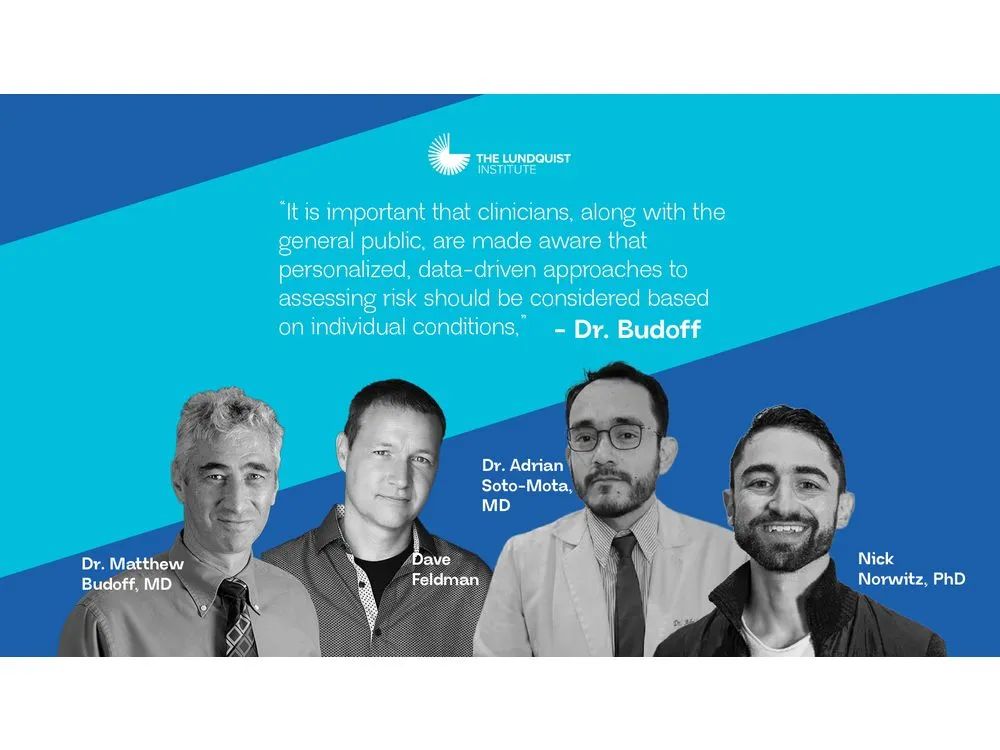Game-Changing Study on Heart Health and Cholesterol: New Insights Revealed
For decades, we’ve been told that cholesterol—especially the so-called “bad” LDL cholesterol—is the enemy. Cardiovascular disease is the leading cause of death worldwide, and it’s long been accepted that saturated fat and dietary cholesterol are major culprits. But what if that foundational belief is due for a serious re-evaluation?
A groundbreaking study just published by Dave Feldman, Nicolas Norwitz, Adrian Soto-Mota, and Matthew Budoff, MD, may mark the beginning of a major shift in how we think about cholesterol and heart health.
The Study That’s Changing Everything
The newly published research, now available in the Journal of the American College of Cardiology: Advances, focuses on a unique subset of individuals following a low-carbohydrate, high-fat (LCHF) diet—known as Lean Mass Hyper-responders (LMHRs). These individuals often show dramatically elevated LDL cholesterol levels while maintaining low triglycerides and high HDL, markers typically associated with excellent metabolic health. Click the link below to read and share:
In short, the findings challenge the assumption that high LDL levels in isolation always signal increased cardiovascular risk—especially in the context of otherwise stellar metabolic markers.
Citizen Science in Action: Who Is Dave Feldman?
Dave Feldman, a former software engineer turned citizen scientist, began publicly documenting his cholesterol experiments in 2016 through his website Cholesterol Code. His self-experiments—like fasting and dietary interventions that manipulated his LDL levels rapidly—caught the attention of both skeptics and supporters.
But he didn’t stop there. Collaborating with Harvard-trained researcher Nicolas Norwitz, clinician-researcher Adrian Soto-Mota, and renowned cardiologist Dr. Matthew Budoff, Feldman and his team launched the LMHR study to bring hard data to the debate.
Their dedication to transparency, collaboration, and rigorous science culminates not only in this paper but also in the upcoming Cholesterol Code documentary, which aims to bring this vital discussion to the public eye.
Why This Matters So Much
For anyone following a ketogenic or low-carb protocol—often as a life-saving intervention for conditions like epilepsy, bipolar disorder, obesity, and diabetes—the medical pushback around rising cholesterol can be devastating. Many patients are told to abandon the very lifestyle that gave them their health back, out of fear they’ll drop dead of a heart attack.
To find a protocol that finally works, only to have a well-meaning doctor demand you stop… it's heartbreaking.
This new research offers hope and validation. It shows that context matters. LDL levels can’t be assessed in a vacuum, and elevated LDL in the presence of low triglycerides, high HDL, and other signs of metabolic health may not be the risk marker we've been led to believe.
At a time when mental health struggles are ravaging individuals and families, having scientific backing for safe, non-pharmaceutical interventions is more than just empowering—it’s essential.
A Personal Note
My own cholesterol levels were flagged during a hospital stay in 2023. Unlike most, I was already aware of the potential disabling effects of statins—because I had watched my mother suffer through them.
Over a decade ago, she was prescribed statins for cholesterol levels that barely crossed the “high-normal” threshold. Shortly after, she began experiencing intense, unexplained muscle pain and weakness. Her doctors brushed it off as “normal”. By the time they finally took her deteriorating condition seriously and discontinued the medication, the damage was irreversible. To this day, simply rising from a chair is a painful struggle. She’s been blamed, shamed, and gaslit into believing her condition is her fault. But I know better.
So when hospital staff insisted I take statins for elevated cholesterol, I was understandably hesitant. At the time, I had been on a ketogenic diet for about a year and was aware of the emerging research around cholesterol—especially in the context of therapeutic low-carb protocols. Despite my refusal, I suspect my wishes were ignored. On multiple occasions, the morning pill I was given to treat my manic episode (olanzapine) appeared different from the evening dose. My questions about this inconsistency were met with vague or evasive answers.
It’s not hard to imagine that someone steeped in the medical dogma around cholesterol might believe they were “saving” an “ignorant, noncompliant psych patient.” That thought still unsettles me.
After my discharge, I scheduled a cardiology appointment and decided to try something I’d learned from a study led by Dr. Nick Norwitz—one of the co-authors of this newly published paper. I added 100 grams of carbohydrate per day to my diet for two weeks and had my labs rechecked. The results? A dramatic drop in total cholesterol and LDL, both nearing “normal” ranges.
And yet… the cardiologist still pushed for a statin. When I asked why such a drastic change didn’t at least warrant further investigation before starting a potentially myotoxic drug, she struggled to offer a coherent explanation.
That’s why this study matters.
It’s not just about science—it’s about having data powerful enough to question the rigid protocols that too often ignore context, patient experience, and common sense.
Final Thoughts: A Call for Open-Mindedness
Science evolves. It has to. And this new paper is a wake-up call to re-examine long-held beliefs, especially when those beliefs may be standing in the way of people’s healing.
If this topic touches your life—or the life of someone you love—don’t stop at this blog. Read the study. Watch the interviews. Ask questions. And join the conversation.
We owe it to ourselves to seek the whole truth—not just the version that’s been repeated the longest.


